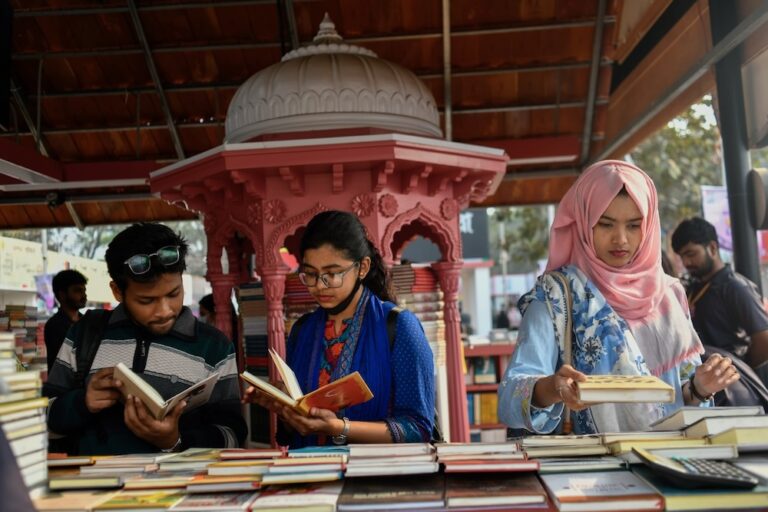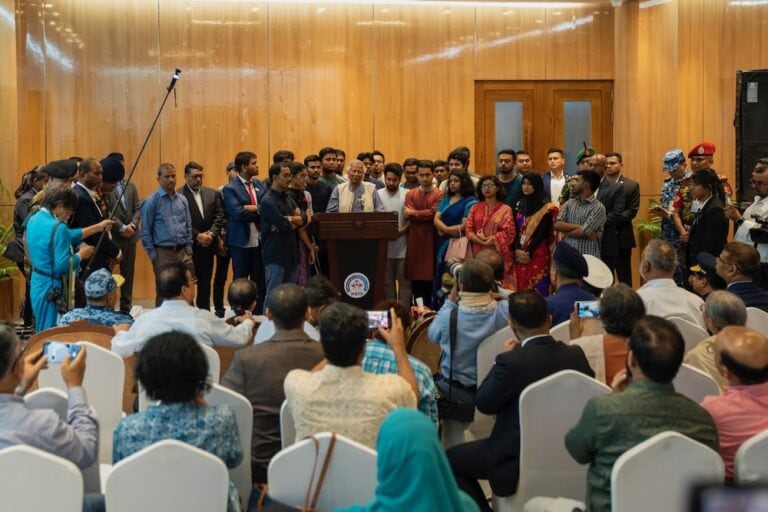(RSF/IFEX) – In a letter to Bangladeshi Minister of Home Affairs Mohammad Nasim, RSF expressed its concern about the new wave of violence against the press, and notably about the implication of Awami League (ruling party) militants in these attacks. The organisation asked the minister to do everything possible to identify and punish those responsible […]
(RSF/IFEX) – In a letter to Bangladeshi Minister of Home Affairs Mohammad Nasim, RSF expressed its concern about the new wave of violence against the press, and notably about the implication of Awami League (ruling party) militants in these attacks. The organisation asked the minister to do everything possible to identify and punish those responsible for these attacks. “The government has to take strong measures to guarantee the security of press professionals. Otherwise, this violence does not bode well for the climate in which the general elections in October 2001 will take place,” stated RSF Secretary-General Robert Ménard. “The impunity enjoyed by members of the ruling party who are responsible for attacks against journalists is shocking,” he added.
According to information obtained by RSF, on 22 June 2001, the office of the daily “Dainik Juger Alo” was the target of an attempted bomb attack in Rangpur (northern Bangladesh). Police defused the bomb. “Dainik Juger Alo”, which is very critical of the government, is published in Rangpur. The newspaper’s owner is a former member of parliament from the Bangladesh National Party (BNP, opposition). The bomb was discovered shortly after Zhaleda Zia, leader of the BNP, arrived in Rangpur for a round of meetings.
That same day, officials from the Awami League’s student wing threatened vendors of “Dainik Dinkal”, the BNP’s organ, and “Dainik Inqilab”, a pro-Islamic daily, with “dire consequences.” The government supporters blame the two newspapers for their coverage of the bomb attack of 16 June, at the Awami League office in Naryanganj, which killed 22 and injured more than 100 people.
Five days earlier, Awami League members in Barisal (soutern Bangladesh) attacked the newspaper “Ajker Kagoj”. They seized and burned copies of the newspaper in the street and threatened to ban the sale of “Ajker Kagoj” by force. In addition, the newspaper’s staff received telephone death threats. The newspaper recently published articles about internal rivalries in the party. In order to prevent other attacks, the police are protecting the newspaper’s offices in Barisal and Dhaka.
In the last ten days, three journalists were attacked or were the target of death threats by opposition groups and local mafia.
On 16 June, unknown persons visited Mohammad Shahidul Islam’s home twice. The journalist, a correspondent for “Dainik Jugantor” in Senbagh, was out at the time, but the attackers assaulted his family and threatened to return and kill him. Shahidul Islam recently published articles on the activities of a group of hooligans linked to local politicians. The journalist asked for police protection.
On 20 June, an underground Islamic group made death threats to the photographer Shahjaban Hossain Badshah of “Dainik Sonali Sangbad”, published in Rajshabi. A message appeared on his mobile phone: “This is your last warning! You will be killed in the next seven days.” It was sent by a mysterious “Taleban group”.
Finally, on the night of 23 June, Monir Hossain, a journalist with “Dainik Ajker Barta” and correspondent for Bangladesh Television (BTV) in Barisal, was followed by three men riding motorbikes, who attacked him with homemade bombs. He managed to escape and get back to his home. The police seized one of the bombs, which had not exploded, to try to identify the perpetrators of the attack.


